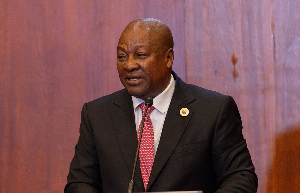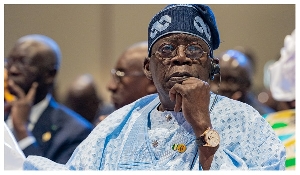The Public Accounts Committee (PAC) of parliament on Wednesday grilled officials of the Ministry of Food and Agriculture (MoFA) and an auctioneer to the ministry for grossly contravening the auction laws and auctioning 24 vehicles to mostly staff of the ministry at ridiculous prices.
The auctioneer, Alex Adjei, side-stepped all the laws governing the proper disposal of government vehicles and disposed of the vehicles, mostly double cabin pick-ups, to the staff of the ministry and pocketed GH¢33,203 as his 7% commission on the sale of the vehicles.
Some of the vehicles were auctioned at GH¢1,000 each.
A Nissan Patrol S/W with registration number GV 1285 U was auctioned for GH¢4,000.
A Nissan double cabin pick-up with registration number GV 1481 U, was also sold at GH¢2,000 while a Mitsubishi double cabin pick-up went for GH¢1,000.
A Galaxy motorcycle was sold at GH¢30.00 while FY motorcycle was also sold at GH¢50.00.
According to the performance audit report of the Auditor-General on the disposal of the unserviceable government vehicles, the auctioneer has been engaged with an appointment letter by the disposing entity, specifying the terms of reference which include publication of the auction in a newspaper of wide circulation, the period within which the auction should be carried out, the account into which the auction proceeds are to be paid and the period within which the proceeds are to be paid.
“The auctioneer is given the list of vehicles and the prices at which they are to be sold. The auctioneer inspects the vehicles and advertises in a newspaper of wide circulation to get the general public informed on the sale of vehicles. On the date and time published in the newspapers for the auction, the auctioneer goes through the list of vehicles to be auctioned and informs the prospective buyers present on the vehicles available for sale.
“The auctioneer selects the vehicles one after the other and asks for bids from prospective buyers present and the vehicle is sold to the highest bidder,” the Auditor-General had said in the report.
According to the Auditor-General, all these things were not followed and above all, the vehicles were exclusively sold to employees at the ministry, which is contrary to Section 1.8 of the Guidelines for Disposal of Goods and Equipment. It states that “In the interest of promoting fair dealing and openness, Procurement Entities must not sell assets to staff, unless arising from a public competitive process.”
The Director of Agriculture Engineering Services Department of the ministry, George Brantuo and Alex Adjei, who were directly or indirectly involved in the sale of the vehicles, apologized profusely to the committee for not following the laid-down procedure in disposing of the said vehicles.
The auctioneer, whose demeanor and constant giggles to serious questions even angered most committee members, said that when he started the auctioning process, the vehicles had already been allocated to the staff of MoFA as well as the prices at which they were to be sold to them.
The auctioneer was also faulted for not paying the monies realized from the sale of the vehicles into government chest in time and also for not paying withholding tax on the commission he got from the auction.
According to the committee, the auctioneer sold some of the vehicles in July, 2013 and kept the money for more than one year before paying it into government chest.
There was an instance when the money was kept with him for more than 20 months.
The ranking member of the committee, Kingsley Aboagye-Gyedu, suggested that since the auctioneer earned his commission without ‘working’ for it, he should be made to refund the money to the state while all the staff who bought the vehicles are made to pay interest on the money that should have been paid within a specified time to the government but reneged on it.
Mr Alex Adjei, however, pleaded with the committee to have mercy on him and forgive him for the ‘mistake’ because he had learned his lesson and would not repeat such a mistake again in the discharge of his duties.
Business News of Thursday, 27 April 2017
Source: classfmonline.com













